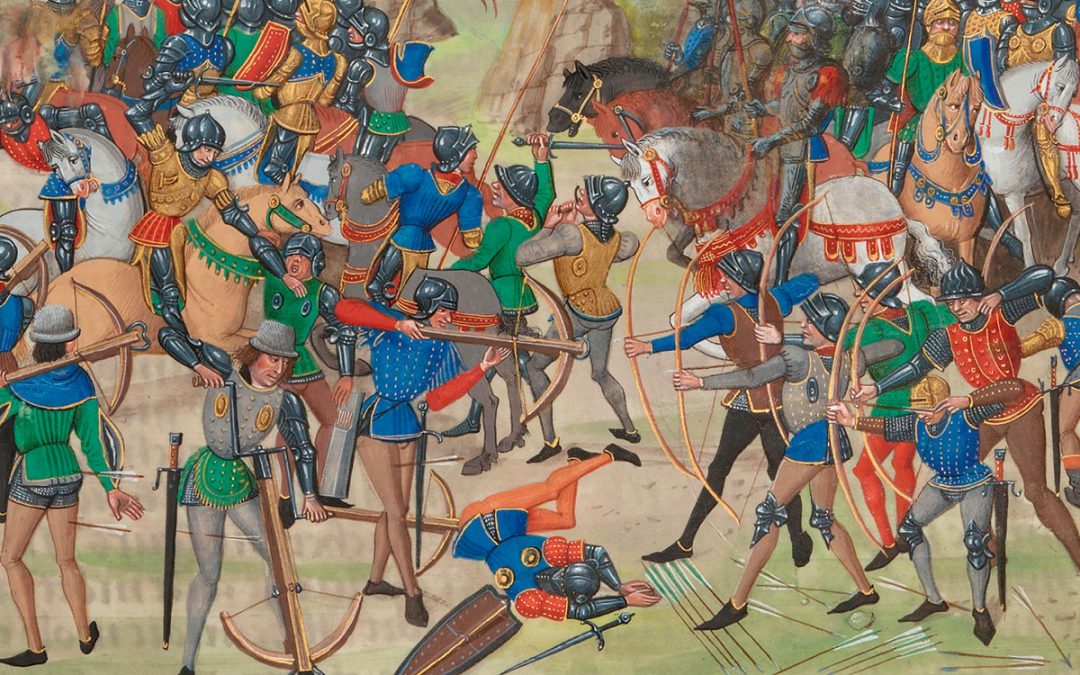The feudal system of society never worked perfectly, but it worked. More importantly, it evolved. Fundamentally it was based on the concept of land ownership. The right of land ownership has at its core the necessity of establishing and maintaining that right by threat of violence. Might does not make right, but it does make what is.
Land ownership was the basic division of feudal society – landowners and landless peasants, or villeins. When a territory was conquered, as when the Normans conquered England, the king laid claim to all the land. He then distributed the lands among his vassals, some great and some small. The great tracts of land were then distributed by the great landowners to lesser lords who became their vassals in turn, committed to answer their lord’s call to arms.
The feudal system became literally ironclad. For 500 years following the collapse of the Roman Empire, the mining and production of other metals steadily declined. Iron alone held its own. After the introduction of the stirrup, which enabled the rider to set securely on his horse, the use of heavy cavalry began to replace infantry in warfare.
The cost of maintaining a knight, his horse, and all his armor and weaponry was considerable. It required the labor and toil of many a landless peasant to put a single knight onto the field of battle. Then, even as now, war was not an everyday event. Between wars, the warriors needed to be kept occupied and ready. Contests, or tournaments, were devised to challenge the knights to perfect their skills and demonstrate their prowess. It was often the case that the chances of a knight being killed or maimed in these tournaments was greater than in war itself.
The church also often acquired large tracts of land. Bishops and monks were exempt from taking up arms, but as landholders they were still obliged to supply men of arms for the common defense.
All in all, with the building and destruction of castles, the endless need for men of arms and the cataclysmic adjustments of society to the vagaries of war, the promise of peace through Jesus Christ often appeared only as an otherworldly dream.
Philosopher’s Corner – Gene Ross

